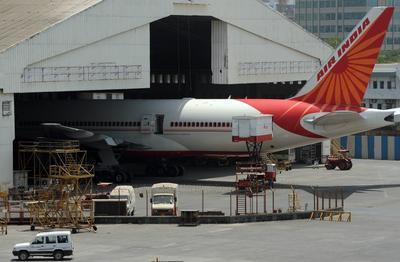As in a two-star Bollywood movie, the main players, side actors and outsiders (in this case, played by the taxpayers who must foot the bill) know the script by heart.
A strike has been called because otherwise Air India’s management will not pay heed to employees’ demands. Now both sides will toughen their respective stands, simply to improve their bargaining positions in the negotiations that both of them know will follow. In the meantime, more employees will join the striking pilots and management will continue to turn the media against the well-heeled pilots and make public appeals to save taxpayers’ money.
Yet these appeals have zero credibility. Taxpayers have been sufficiently educated by the Comptroller and Auditor General, social activist Anna Hazare and others on flagrant squandering and swindling of the public exchequer by those charged with the direct responsibility of safeguarding it. The issue is bound to be escalated to the higher authorities, who will appeal to both sides to protect India’s national interest and prestige. Some kind of compromise will be worked out, but only until the next major dispute, which will again precipitate a strike because the Indian government these days practises management by crisis.
The answer to the simple question as to who benefits from this ongoing mess is rather straightforward: Air India’s status as a PSE serves the vested interest of no more than a hundred thousand persons in a country of 1.2 billion. Its continuation as a PSE has no strategic implications and does not serve the interests of either the poor or the so-called aam aadmi (common man), despite the arguments to this effect.
Those who support Air India’s continued status as a PSE say the airline connects far-flung and sparsely populated regions around the country and serves the annual air travel needs of religious pilgrims. This argument is as spurious as saying that villages can be connected to the telecommunications network only through the state-owned BSNL, or that only public sector road transport services can connect rural destinations. Public service objectives can be far more efficiently achieved by a judicious and well-regulated operation of public–private partnerships, with the government partly footing the bill through viability gap funding.
Now that even the minister in charge of Air India has said that the government is not equipped to manage a service industry, it is high time that Air India — an entity which neither serves the public interest nor earns revenues for the government — be handed over to the highest private sector bidder, either domestic or foreign, and preferably hailing from the airline sector. Even in private hands it will remain an Indian company, and if its performance improves under private ownership — as it will most likely do — it will be a matter for national pride, similar to India’s pride in the Maharaja and other Indian airlines that now compete successfully with the best in the world.
The only possible losers if Air India is privatised will be the handful of people who get to travel first class on the public purse. This is not a convincing reason for Air India to continue to be a PSE. Air India should be privatised as soon as possible, even if it means having to entice a strategic investor by offering them the lucrative bilateral routes currently owned by Air India under the International Air Transport Association’s global oligopolistic arrangement.
The global civil aviation industry is a viciously competitive environment characterised by long cycles of troughs and peaks, where only the best companies can hope to survive. Air India, with its senior management made up of civil servants who are perpetually uncertain of both their actual authority and their tenure, is poorly prepared to face this competition. If Air India is to take off, it must implement advanced management and human-resources practices to motivate staff, give them ownership in the company, and a sense of pride and fulfilment in achieving success.
Attempts to find a solution or fix the problem without modifying the existing framework are bound to fail, as the plan to revive Air India with the help of leading lights from the corporate world failed before. There is simply no alternative to privatising Air India. The longer it is postponed, the greater will be the damage to national pride, the public exchequer and the Indian civil aviation industry. For India’s sake let’s act decisively now.
Rajiv Kumar is Secretary-General at the Federation of Indian Chambers of Commerce and Industry.
This article was first published here in the Daily Mail Online.

